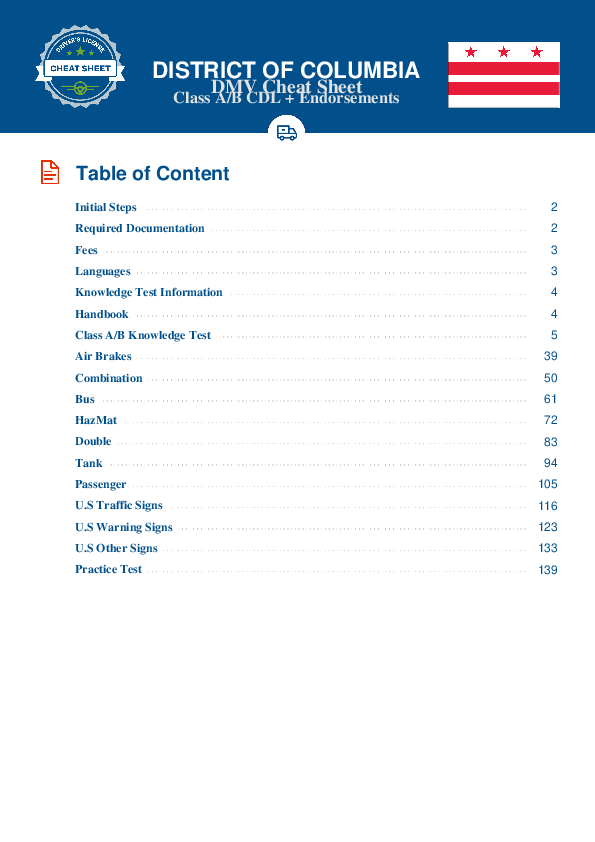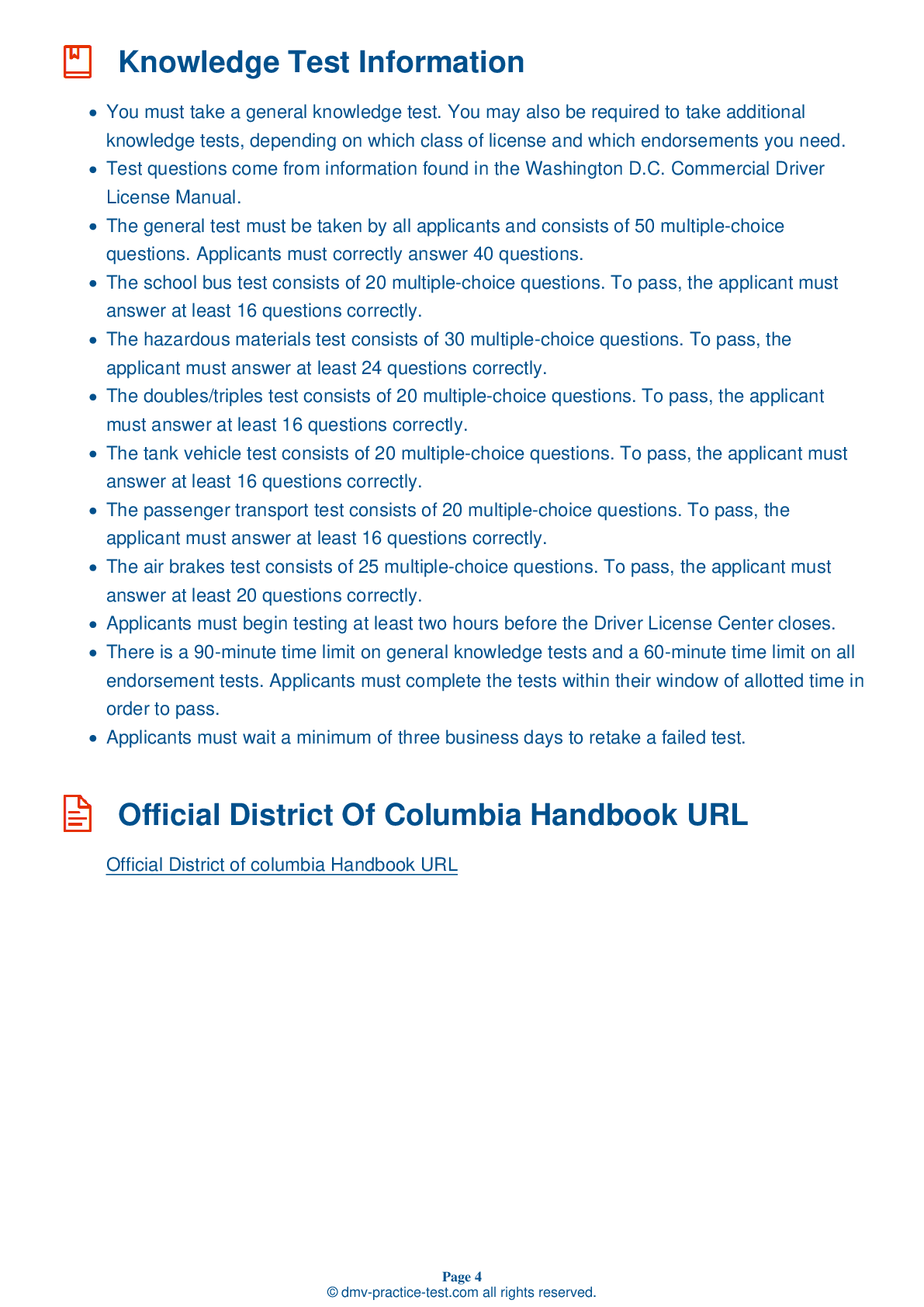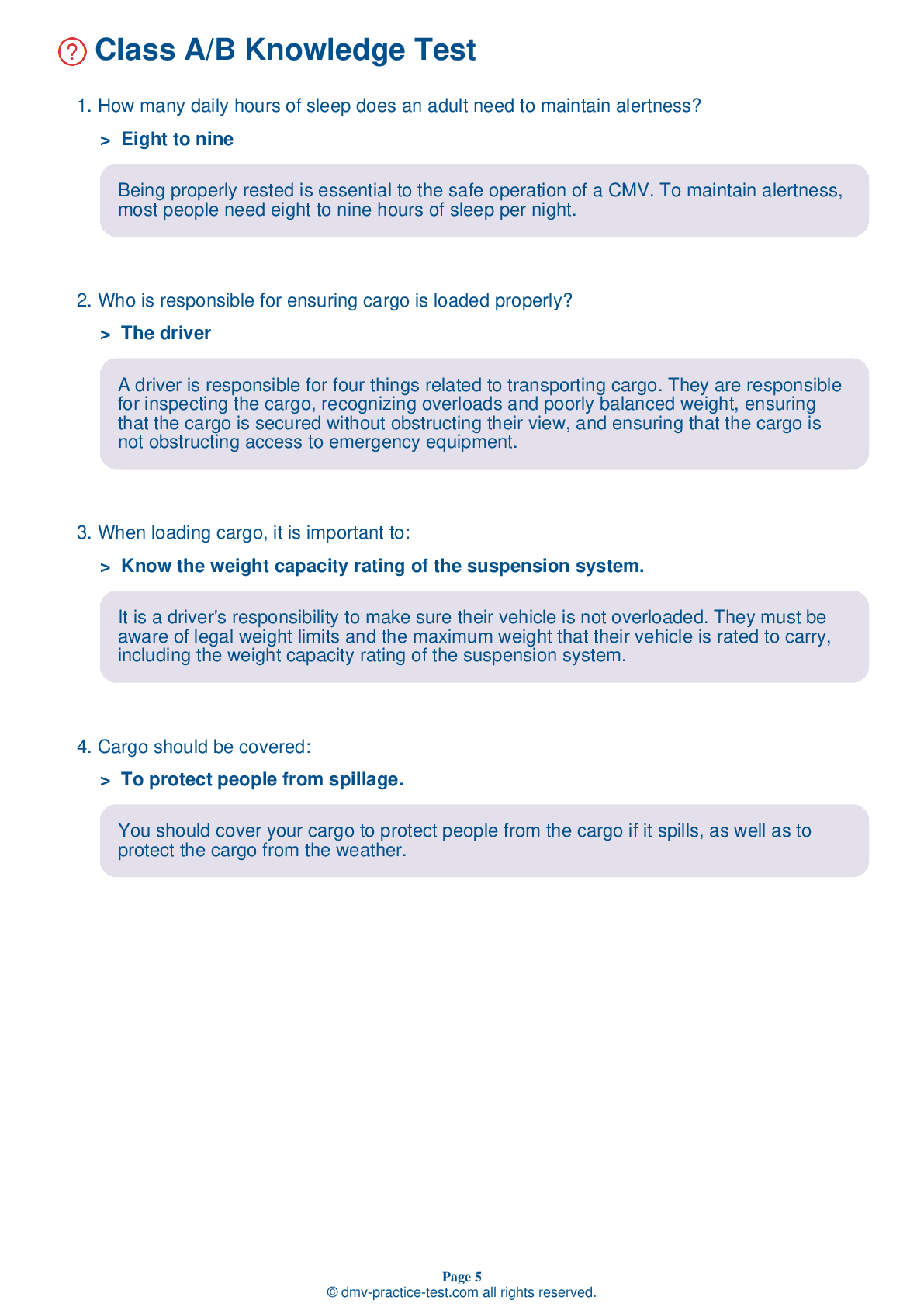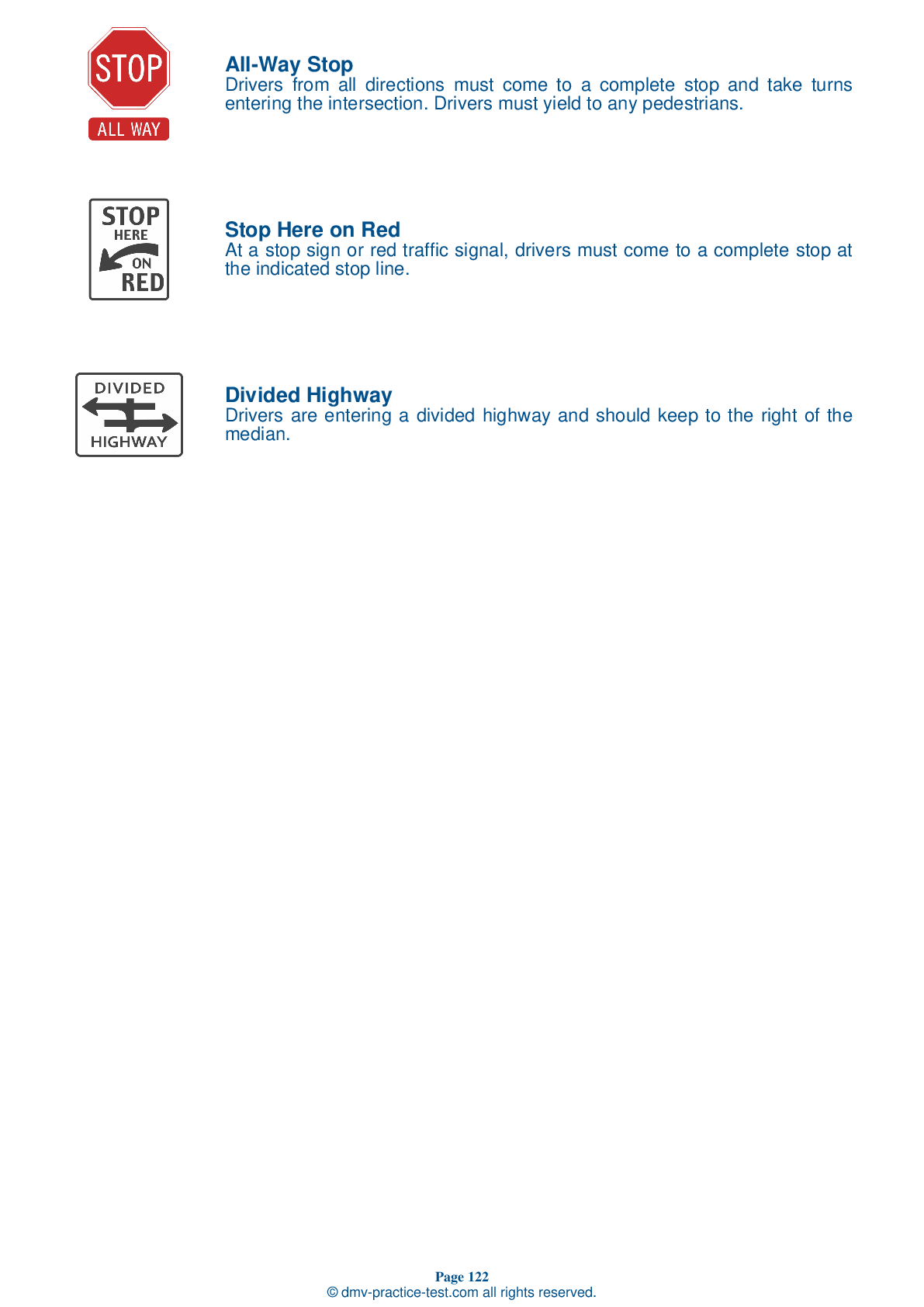Knowledge Test Class B #1
Class B Driving Test | District Of Columbia 2026 #1 Page 5 of 7
Train for FREE online with our District Of Columbia class B license test. The official exam test consists of several obligatory parts, with all of them checking your knowledge of different blocks of road rules. If you need to obtain a DC CDL class B permit in 2026, practice as much as possible. Free sample tests published on our website will help you check and improve your knowledge and boost your grades. Please bear in mind that CDL class B requirements may vary from state to state.
50
40
20
29 . Hydroplaning occurs when:
Front tires have less traction than rear tires.
Hydroplaning is an effect that occurs on wet roads when tires lose traction with the road surface and begin gliding along on a layer of water.
30 . If asked to sight-side back your vehicle into an alley, you should first:
Pull past the alley and stop parallel to the outer boundary.
If you are asked to alley dock, you should first pull past the alley and stop your vehicle in a position that is parallel to the outer boundary. From there, you should back your vehicle entirely into the alley parking area. Your vehicle should be parked in a straight position within the boundaries of the parking space.
31 . When approaching a curve during the on-road driving test, you must do all of the following, except:
Steadily use the brakes throughout the curve.
When approaching a curve during the on-road driving test, you should thoroughly check traffic in all directions. Before entering the curve, reduce your speed sufficiently so that further braking or shifting is not required. Keep your vehicle in its lane and continue checking traffic in all directions.
32 . Air tank drains:
Must remain open during driving.
Compressed air in an air brake system usually contains a certain amount of water and compressor oil. The water and oil can damage the brakes if left to accumulate in the system. Manually operated air tank drains must be opened daily to remove this build-up.
33 . Trailers should:
Be loaded with all the weight directly behind the cab.
Overloading a vehicle is dangerous. It can damage the vehicle and interfere with the driver's ability to control it.
34 . Most drivers are the least alert:
After work.
Fatigue and lack of alertness are major hazards when driving at night. Most people are the least alert at night, especially after midnight.
35 . When checking the exhaust system, it should be:
Cracked.
When checking the exhaust system, you should verify that no parts of the system are loose, broken, or missing.
2026 District Of Columbia | Frequently Asked Questions
In the District of Columbia, a CDL Class A license allows the holder to operate any combination of vehicles with a Gross Combination Weight Rating (GCWR) of 26,001 pounds or more, provided the Gross Vehicle Weight Rating (GVWR) of the vehicle(s) being towed is over 10,000 pounds. This includes tractor-trailers, truck and trailer combinations, and flatbeds.
A Class A CDL license in the District of Columbia permits the holder to operate various types of larger, heavier commercial vehicles. This includes tractor-trailers, truck and trailer combinations, tank vehicles, livestock carriers, and flatbeds. The vehicles can have a Gross Combination Weight Rating (GCWR) of 26,001 pounds or more if the towed vehicle is over 10,000 pounds.
To obtain a Class A CDL license in the District of Columbia, you must be at least 21 years old, possess a valid non-commercial driver's license, pass a vision test, and provide proof of residency and identity. You'll also need to pass written knowledge tests, obtain a Commercial Learner's Permit (CLP), and successfully complete a skills and road test.
In the District of Columbia, you must be at least 21 years old to qualify for a Class A Commercial Driver's License (CDL). This age requirement is consistent across all states and is set by federal regulation. This allows for interstate operation of commercial vehicles. For intrastate (within the same state), the minimum age can be 18.
Specific endorsements are not required for a Class A CDL license but they can provide additional driving privileges. These include endorsements for operating vehicles like school buses, passenger vehicles, tank vehicles, and vehicles carrying hazardous materials. Each endorsement requires passing specific knowledge and skills tests.
The Class A CDL skills test in the District of Columbia consists of three parts: the vehicle inspection test, the basic control skills test, and the road test. The vehicle inspection test involves checking the vehicle's safety components, the basic control skills test assesses your ability to maneuver and control the vehicle, and the road test evaluates your on-road driving skills.
Yes, limitations can be imposed on Class A CDL license holders in the form of restrictions. These are based on the driver's abilities or the type of vehicle they tested in. For example, if a driver takes the skills test in an automatic transmission truck, they will have an 'E' restriction, limiting them to automatic transmission vehicles only.
Yes, it is possible to take the written Class A CDL test in languages other than English in the District of Columbia. However, the Federal Motor Carrier Safety Administration requires all CDL holders to read and speak English sufficiently to converse with the general public, understand highway traffic signs and signals, respond to official inquiries and make entries on reports and records.
Yes, you can request accommodations for the Class A CDL written test in the District of Columbia due to disability. The DMV is committed to providing accessible services and accommodations to individuals with disabilities. You should contact the DMV directly in advance of your test to discuss your needs and the potential accommodations available.
If you don't pass the Class A CDL written test in the District of Columbia, you are allowed to retake it. However, you must wait three days before retaking the test. If you fail the test three times, you must wait 90 days before taking it again. There's also a retesting fee that applies each time.



